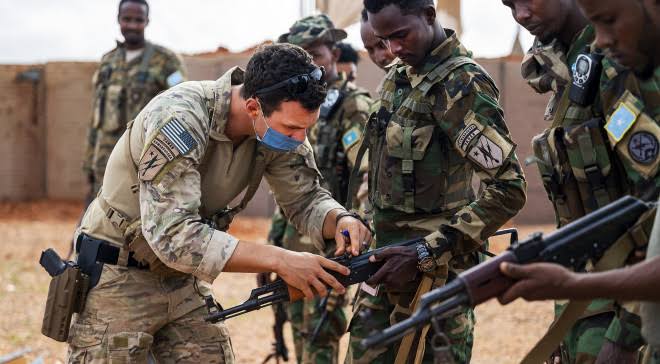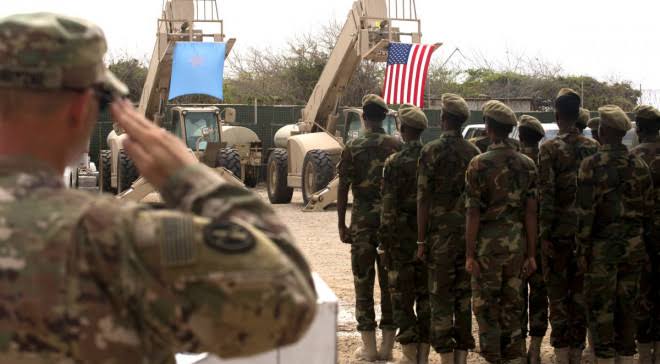Facebook Twitter (X) Instagram Somali Magazine - People's Magazine
On December 31, 2024, the United States Africa Command (AFRICOM), in collaboration with the Federal Government of Somalia, executed a precision airstrike targeting the militant group al-Shabaab. The operation took place in Beer Xaani, approximately 35 kilometers northwest of Kismayo, a strategic port city in southern Somalia. The airstrike resulted in the elimination of ten al-Shabaab militants, with no reported civilian casualties, underscoring the commitment to minimizing collateral damage in counterterrorism efforts.
In addition to the airstrike, U.S. forces provided critical support to Somali troops by evacuating soldiers injured during engagements with al-Shabaab. This assistance highlights the ongoing partnership between the U.S. and Somalia in combating extremist threats in the region.
Al-Shabaab, an extremist group with affiliations to al-Qaeda, has been a persistent threat in Somalia and the broader Horn of Africa since its emergence in 2006. The group seeks to impose a strict interpretation of Islamic law and has been responsible for numerous attacks targeting government officials, civilians, and international partners. Their activities have destabilized the region, prompting coordinated efforts to neutralize their influence.

The recent operation is part of a broader strategy by AFRICOM and Somali forces to disrupt al-Shabaab’s operational capabilities. By targeting key figures and infrastructure, these efforts aim to degrade the group’s ability to plan and execute attacks. The U.S. Department of Defense emphasizes that such operations are conducted with stringent measures to prevent civilian harm, aligning with international humanitarian laws and the overarching goal of promoting regional stability.
AFRICOM, headquartered in Stuttgart, Germany, plays a pivotal role in U.S. military operations across Africa. Its mission encompasses countering malign actors, responding to crises, and strengthening the security capabilities of partner nations. In Somalia, AFRICOM’s collaboration with the Federal Government and the Somali National Army is crucial in addressing the challenges posed by al-Shabaab and other extremist groups.
The Somali government has been actively engaged in reclaiming territories held by al-Shabaab, with significant progress reported in recent years. The support from international partners, particularly the United States, has been instrumental in these efforts. The combined operations have not only targeted militant strongholds but have also focused on disrupting financial networks and recruitment channels that sustain al-Shabaab’s activities.
The December 31 airstrike follows a series of coordinated actions against al-Shabaab. Notably, on December 24, a U.S. precision airstrike resulted in the death of Mohamed Mire, a senior al-Shabaab leader, approximately 10 kilometers southwest of Quyno Barrow. Such targeted operations are designed to dismantle the leadership structure of the group, thereby weakening its operational effectiveness.
The international community continues to monitor the situation in Somalia closely. The United Nations and the African Union have been involved in peacekeeping and stabilization missions, aiming to support the Somali government’s efforts in establishing security and governance. The recent approval of the African Union Support and Stabilization Mission in Somalia (AUSSOM) by the UN Security Council underscores the ongoing commitment to achieving long-term peace in the region.
In conclusion, the collaborative efforts between the United States and Somalia in conducting precision airstrikes against al-Shabaab signify a sustained commitment to eradicating extremist threats in the Horn of Africa. The December 31 operation, resulting in the elimination of ten militants without civilian casualties, reflects the effectiveness of coordinated military actions and the importance of international partnerships in promoting regional stability and security.

